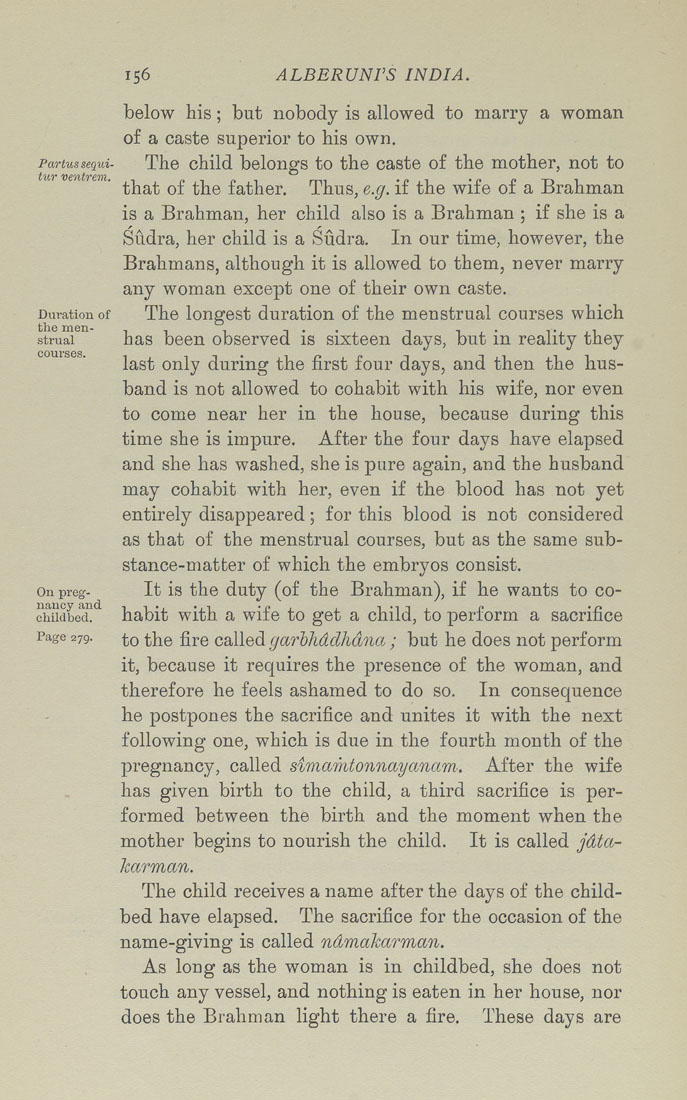156
ALBERUNTS INDIA.
Partus sequi-
tur ventrem.
Duration of
the men¬
strual
courses.
On preg¬
nancy and
childbed.
Page 279.
below his; but nobody is allowed to marry a woman
of a caste superior to his own.
The child belongs to the caste of the mother, not to
that of the father. Thus, e.g. if the wife of a Brahman
is a Brahman, her child also is a Brahman ; if she is a
Siidra, her child is a Sudra. In our time, however, the
Brahmans, although it is allowed to them, never marry
any woman except one of their own caste.
The longest duration of the menstrual courses which
has been observed is sixteen days, but in reality they
last only during the first four days, and then the hus¬
band is not allowed to cohabit with his wife, nor even
to come near her in the house, because during this
time she is impure. After the four days have elapsed
and she has washed, she is pure again, and the husband
may cohabit with her, even if the blood has not yet
entirely disappeared; for this blood is not considered
as that of the menstrual courses, but as the same sub¬
stance-matter of which the embryos consist.
It is the duty (of the Brahman), if he wants to co¬
habit with a wife to get a child, to perform a sacrifice
to the fire called gai'bhddhdnct; but he does not perform
it, because it requires the presence of the woman, and
therefore he feels ashamed to do so. In consequence
he postpones the sacrifice and unites it with the next
following one, which is due in the fourth month of the
pregnancy, called simctmtonnayanctm: After the wife
has given birth to the child, a third sacrifice is per¬
formed between the birth and the moment when the
mother begins to nourish the child. It is called jdtct-
karman.
The child receives a name after the days of the child¬
bed have elapsed. The sacrifice for the occasion of the
name-giving is called ndmctkctrman.
As long as the woman is in childbed, she does not
touch any vessel, and nothing is eaten in her house, nor
does the Brahman light there a fire. These days are
|








